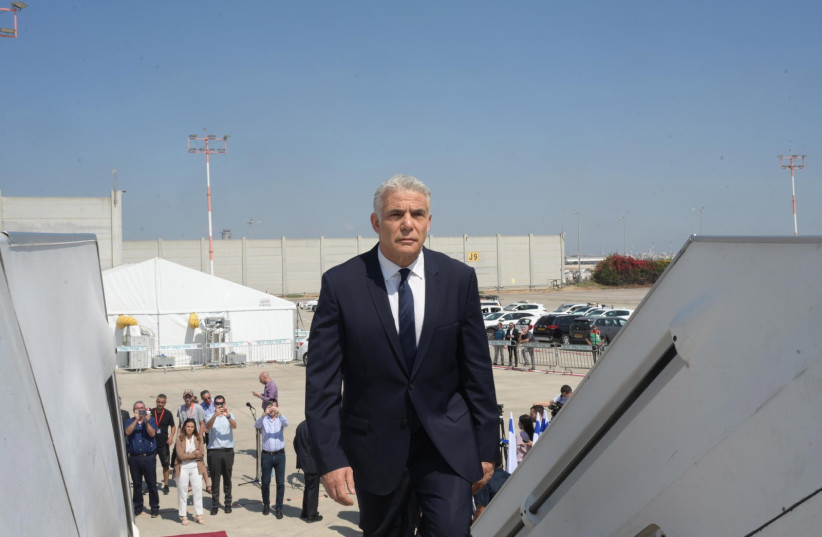PARIS – The obstacles to egalitarian prayer at the Western Wall in Jerusalem are unacceptable, Prime Minister Yair Lapid said on Tuesday.
“The limitations on the prayers there make Israel the only Western state in which Jews don’t have freedom of worship, which is unacceptable to me,” Lapid said in a news briefing.
Lipstadt lashes extremists
Lapid’s remark came in response to a question about a tweet from US Special Envoy to Monitor and Combat Antisemitism Deborah Lipstadt. Linking to an article about Orthodox extremists attacking attendees at an egalitarian bar mitzvah and tearing up prayer books, Lpistadt wrote that she was “deeply disturbed by the troubling actions of a group of extremists last week at the Kotel.”
“Let us make no mistake, had such a hateful incident – such incitement – happened in any other country, there’d be little hesitation in labeling it antisemitism,” she wrote.
Lapid said he was “against all violence, especially at the Kotel, against people who want to pray as their faith allows them to. It cannot happen. Violence is not acceptable to me or the government. If necessary, I will talk to the chief of police.”

“The limitations on the prayers there make Israel the only Western state in which Jews don’t have freedom of worship, which is unacceptable to me.”
Prime Minister Yair Lapid
<br>Will Lapid compromise?
Lapid declined to answer whether the government under his leadership will authorize the Western Wall compromise for how the egalitarian section should be managed, which former prime minister Benjamin Netanyahu froze six years ago. Doing so would require a vote in the Knesset, which was dissolved ahead of November’s election, and would need a legislative majority, which the government does not have.
“Let us make no mistake, had such a hateful incident – such incitement – happened in any other country, there’d be little hesitation in labeling it antisemitism.”
US Special Envoy to Monitor and Combat Antisemitism Deborah Lipstadt
The “Israel section” of the Western Wall is separate from the main, gender-segregated plaza. It was designed for use by non-Orthodox streams of Judaism in which men and women pray together. In recent years, since its expansion, it has been plagued by disruptions from haredi and other Orthodox protesters trying to prevent services from taking place or attempting to separate men and women.
